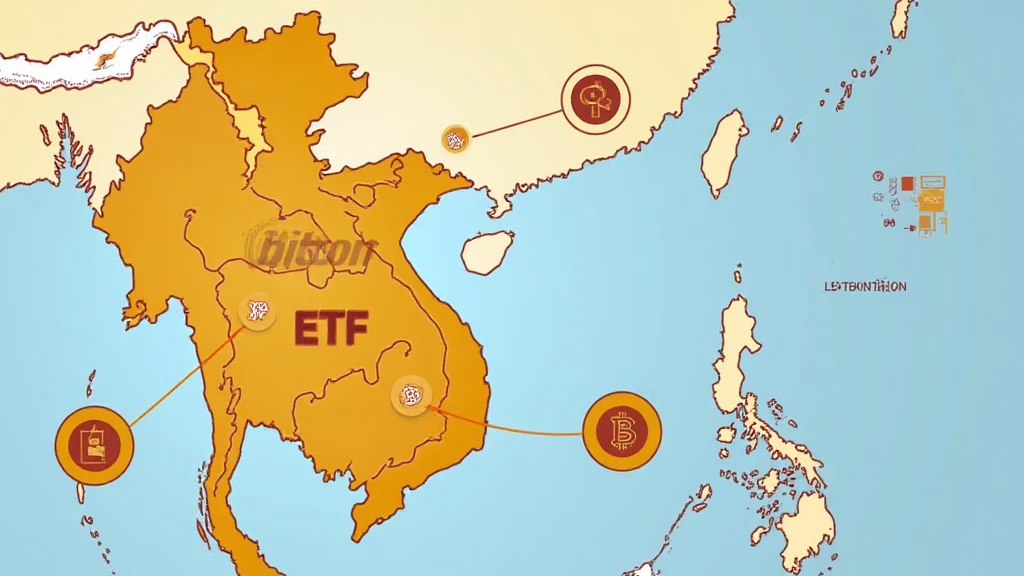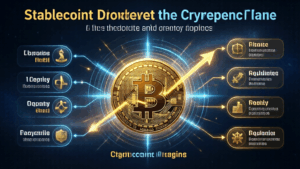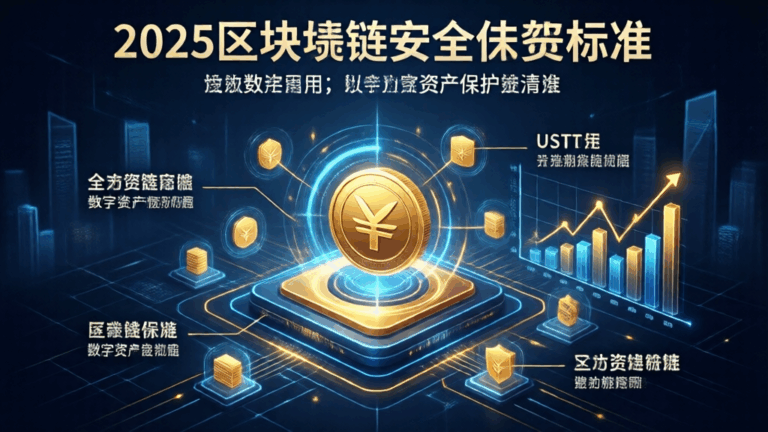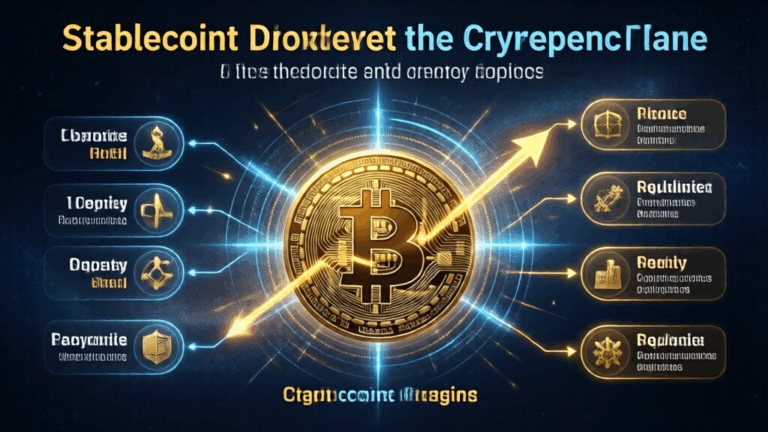Introduction
The Bitcoin landscape globally is evolving, with regulatory frameworks playing a significant role in shaping market dynamics. In Vietnam, as cryptocurrency adoption surges, the question arises: What does the regulatory environment for Bitcoin ETFs look like? In 2024, the Vietnamese cryptocurrency market has seen a whopping 30% growth rate among users, indicating a strong interest in digital assets. This article aims to explore the Bitcoin ETF regulatory landscape in Vietnam, addressing its implications for investors and the future of cryptocurrency in the country.
What is a Bitcoin ETF?
A Bitcoin Exchange-Traded Fund (ETF) allows investors to gain exposure to Bitcoin without directly purchasing the cryptocurrency itself. Essentially, it functions like a traditional ETF but is backed by Bitcoin assets. This means that when you invest in a Bitcoin ETF, you do not own Bitcoin directly; instead, you hold shares that track the price of Bitcoin. The growing interest in Bitcoin ETFs can be compared to the way investors traditionally seek gold investments—providing a safer way to invest in a volatile asset.
How Bitcoin ETFs Work
- Bitcoin ETFs are traded on stock exchanges, similar to regular stocks.
- They track the Bitcoin price, allowing investors to profit from the rise and fall of Bitcoin.
- Investors can buy and sell shares of Bitcoin ETFs without needing a cryptocurrency wallet.
The Regulatory Environment for Cryptocurrency in Vietnam
Vietnam’s approach to cryptocurrency has been cautious yet evolving. In 2018, the State Bank of Vietnam prohibited the use of cryptocurrencies as a means of payment. However, interest in cryptocurrencies and blockchain technology remains high among the population. As of 2023, there have been talks of developing a regulatory framework for digital assets, including Bitcoin ETFs. This shift indicates a potential opening for legal frameworks surrounding cryptocurrency investments.

Vietnam’s Approach to Bitcoin ETF Regulations
Currently, there is no specific regulation in Vietnam regarding Bitcoin ETFs. However, regulatory bodies have hinted at working towards a framework that could allow for such products. This is a crucial step, especially considering the increasing interest from foreign investors. According to a report by Statista, the number of cryptocurrency users in Vietnam reached over 5.3 million in 2023, emphasizing the need for clearer regulations.
Why Bitcoin ETFs Matter for Vietnamese Investors
For Vietnamese investors, Bitcoin ETFs offer several advantages:
- **Easier Access**: Investing in Bitcoin ETFs does not require a deep understanding of cryptocurrencies or the technology behind them.
- **Regulatory Safety**: Bitcoin ETFs, once regulated, will provide a layer of security for investors against fraud—historically a significant concern in the crypto space.
- **Portfolio Diversification**: These funds present an opportunity for investors to diversify their investment portfolios without direct exposure to Bitcoin volatility.
Risks Associated with Bitcoin ETFs
While Bitcoin ETFs present various benefits, investors should also be aware of the risks:
- **Market Volatility**: Bitcoin prices can fluctuate dramatically, which can affect the ETF’s price.
- **Management Fees**: Bitcoin ETFs typically charge management fees that can erode returns over time.
- **Regulatory Uncertainty**: Given that the regulatory framework is still in development, investors might face restrictions as regulations evolve.
The Future of Bitcoin ETFs in Vietnam
Looking forward, the outlook for Bitcoin ETFs in Vietnam seems promising. As global trends towards the acceptance of Bitcoin ETFs gain momentum, Vietnam may soon implement guidelines that would allow for more structured investment options in the crypto space. This move could potentially elevate the market and attract more sophisticated investors.
Vietnam’s Digital Asset Market Potential
The digital asset market in Vietnam is on the brink of a revolution. With an estimated 10 million users projected by 2025, embracing Bitcoin ETFs is likely to attract not only local investors but also institutional ones looking for exposure to the Southeast Asian market.
The Importance of Compliance with International Standards
As Vietnam progresses towards regulating digital assets, ensuring compliance with international standards such as the Financial Action Task Force (FATF) guidelines will be essential. This compliance will help to legitimize the industry and attract further investments.
Conclusion
The regulatory environment for Bitcoin ETFs in Vietnam is currently in its nascent stages but is evolving. As interest in cryptocurrency continues to grow, establishing clear regulations could help protect investors while fostering innovation. As we await the regulatory framework to solidify, potential Bitcoin ETF launches could significantly impact the Vietnamese market, drawing in more investors interested in digital assets. For further information and updates on Bitcoin ETFs and other cryptocurrency regulations in Vietnam, be sure to visit bitcoincashblender.
Authored by Dr. Michael Nguyen, a blockchain technology expert with over 20 published papers and extensive experience in auditing renowned blockchain projects. His insights contribute significantly to understanding the intertwining of regulatory frameworks and cryptocurrency innovations.












